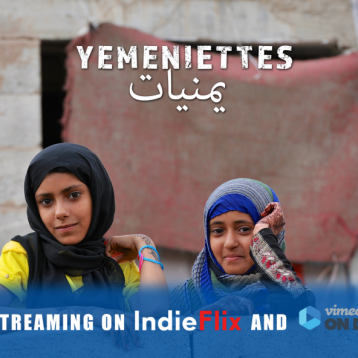Vol. IV Issue 2, October 2012
“Partnerships for the Middle East and North Africa in 21st Century American Statecraft”
by Kris M. Balderston and Joshua W. Walker, Ph.D
The tragic killing of U.S. diplomats in Libya on September 11, 2012 and the ongoing protests throughout the region are a powerful reminder of the work yet to be done in the Middle East and North Africa. As Secretary of State Clinton reminded all Americans, “We must be clear-eyed, even in our grief.” In a country “scarred by war and tyranny,” she noted that the Ambassador and his colleagues were “hailed as friends and partners.” “The friendship between our countries,” she concluded, “borne out of shared struggle, will not be another casualty of this attack.” Partnering with the people and new governments of the region has never been more critical than in the days after this international tragedy. Under the leadership of Secretary Clinton, we are developing a new way forward and engaging in a form of 21st century diplomacy that relies on partnerships and collaboration. And even in the most difficult and challenging circumstances, the Secretary has made it clear, partnership is the key for achieving progress.
From Tunisia to Yemen, the world’s attention is focused on the Middle East and North Africa as one of the most critical geographies in the world. The voices that have come to shape the “Arab Awakening” are still coming to fruition as they replace long-embedded institutions that are learning to adapt or change from within. Just as these countries identify new mechanisms and approaches toward democracy, so too has the U.S. State Department’s approach towards partnering with these emerging players. Today, we remain more committed than ever to realize the legacy of our fallen colleagues through the acts of partnership and services that their sacrifices inspire.
The Cairo Legacy
“I’ve come here to Cairo to seek a new beginning between the United States and Muslims around the world, one based on mutual interest and mutual respect, and one based upon the truth that America and Islam are not exclusive and need not be in competition.”— U.S. President Barack Obama, Cairo, Egypt, May 2009
In May 2009, U.S. President Barack Obama delivered a ground-breaking speech in Cairo in which he laid out America’s interest in seeking a new type of partnership with the Muslim world. This new approach was universally hailed as a bold and fresh perspective for an American administration to take towards a critically important yet complicated region of the world. Since that speech, the State Department has been working to redefine the way it engages at all levels of government and civil society. Under Secretary Clinton, we’ve launched a new approach towards engagement rooted in collaboration and partnerships through which we can promote shared interests and provide the incentives to keep moving forward.
In 2009, U.S. Secretary of State Clinton launched the Global Partnership Initiative (GPI) to showcase how a new partnership approach can be applied to a wide range of global challenges. GPI emphasizes building broad coalitions and comprehensive partnerships— including with foreign governments, multilateral organizations, civil society groups, universities, foundations, corporations, and others— to address global challenges.
Bilateral relationships and multilateral institutions remain important foreign policy priorities, but we recognize that solving many complex challenges requires diverse actors with different perspectives, skills, tools, and resources. Government-to-government conversations are no longer enough to solve many of the region’s most difficult challenges. Our approach is “global” not just in a geographic sense, but in the comprehensiveness of the partners involved as well. Over the past several years, the U.S. Government has worked to expand these networks to include non-traditional foreign policy partners, such as the private sector, diaspora communities, indigenous grassroots organizations, and nonelites.
Global Partnership Initiative
GPI represents an approach to foreign policy that emphasizes building broad coalitions and comprehensive partnerships— including with foreign governments, multilateral organizations, civil society groups, universities, foundations, corporations, and others— to address global challenges. Whereas traditional engagement through our embassies and other means helps build relationships, maintain lines of communication, and gather information relevant to U.S. interests, global partnering specifically focuses on engagement for collective problem-solving.
There are a number of offices and programs that emphasize building comprehensive partnerships for problem-solving and GPI has been the catalyst and entrepreneur within the U.S. Department of State. While we seek to cultivate an interagency culture that emphasizes whole-of-government solutions, we also recognize the need to empower and incentivize our local partners whether they be in the U.S. private sector or abroad to think creatively about building “whole-of- nation” or “whole-of-community” approaches, enlisting the full range of partners outside government and drawing upon skills more commonly found in organizing and coalition-building. Perhaps one of our greatest successes has come within the Middle East, but many challenges remain for its long-term sustainability.
In 2010 GPI started working with communities in the Middle East and North Africa for the first time to build local partnerships where many of the nascent concepts that would soon become embedded within the broader “Arab Awakenings” were first highlighted and reinforced. Signature partnerships such as our Partners for a New Beginning (PNB) and International diaspora Engagement Alliance (IdEA) are now important mechanisms through which to seek new partnerships across communities and the region.
Since 2010, our work through PNB has established 10 locally-owned and locally-driven chapters in Algeria, Egypt, Indonesia, Morocco, Pakistan, Tunisia, Turkey, Jordan, Mauritania, and the Palestinian Territories. PNB has grown into a cross-cutting global network of prominent business leaders and civil society actors who are committed to building effective partnerships that promote economic opportunity, foster advances in science and technology, enhance educational opportunities, and catalyze exchanges to enhance mutual understanding in a variety of fields. Numerous delegations, events, and partnerships have been launched by PNB, but perhaps the greatest added value is the creation of an overarching framework for locally-driven partnerships that has been successful at mobilizing and multiplying resources, as demonstrated by the number of countries who seek to join PNB after just two years.
IdEA harnesses the global connections of diaspora communities to promote sustainable development in their countries of origin or heritage, and no region is currently as critical as the Middle East and North Africa. Currently, there are over 62 million first and second-generation members of diasporas in the United States, and almost all Americans have immigrant roots further back. These connections have led to an estimated $95.8 billion in remittances sent to the developing world in 2010. IdEA leverages this energy and serves as a platform designed to engage diaspora communities, governments, the private sector, civil society, and public institutions to develop diaspora-centric partnerships in a variety of fields and sectors, particularly focused on entrepreneurship, philanthropy, volunteerism, diplomacy, and innovation around the world.
In November 2011, IdEA co-facilitated the Tunisia Partnerships Forum which brought twenty Tunisians to the United States to join over 200 forum participants, including Arab-American investors and U.S. business leaders, to create revenue-generating deals aimed to foster job creation and economic opportunity in Tunisia. IdEA continues to actively engage the Arab-American community and their countries of origin, developing new partnership models to work with and improve lives in countries like Tunisia, a now critically important state in the changing Middle East.
Most recently the largest business delegation to the Middle East and North Africa ever organized by the U.S. Chamber, and the second largest in the 100-year history of the institution, visited Egypt in September 2012. As the third business delegation that the State Department has fielded since the 2011 Revolution, we have demonstrated our belief in the critical importance and mutual benefit of investing in Egypt and its neighbors now— particularly in its talented young men and women. As the transition in Egypt continues, the Egyptian and American private sectors have called upon their governments to form a new partnership that is worthy of the full magnitude of this historic moment.
Partnering for the Future
New partnerships are being formed all the time and we are eager to engage the new realities of the Middle East and North Africa as constructive partners. Communicating effectively in a way that raises the visibility of our activities and demonstrates their relevance to the widest possible audience, beyond traditional partners, underscoring through words and deeds that the United States is committed to constructive partnerships, is crucial for the long-term sustainability of our efforts. Despite our programs and consistent references to the President and Secretary’s emphasis on global partnerships, many key audiences remain unaware of our efforts and feel we have not lived up to our commitments.
While events on the ground will continue to define the parameters within which we can effectively seek partners for new beginnings throughout the region, our commitment remains unshakable especially in the face of extremism. By partnering with the private sector and groups such as diaspora and youth communities, we hope to open a new level of dialogue that involves all relevant actors internationally. Partnerships like those we’ve already created between the United States and countries of the Muslim world will continue to lead the way towards 21st century American statecraft.
About the Authors
Kris M. Balderston serves as the Special Representative for Global Partnerships at the Global Partnership Initiative within the Office of the Secretary of State. At the Global Partnership Initiative, he leads global public-private partnerships in support of the Secretary’s priorities, including the Accelerating Market-Driven Partnerships, Global Alliance for Clean Cookstoves, International Diaspora Engagement Alliance and Partners for a New Beginning. He holds his BA in Political Science from LeMoyne College and his MA in Government from Georgetown University.
Dr. Joshua W. Walker is the Senior Advisor for the Middle East and North Africa in the Office of the Secretary’s Global Partnership Initiative. As a Council on Foreign Relations International Affairs Fellow serving at the US State Department, he coordinates the Partners for a New Beginning initiative, which is a public-private network active in Algeria, Egypt, Indonesia, Jordan, Libya, Mauritania, Morocco, Pakistan, Tunisia, Turkey and the Palestinian Territories. Dr. Walker earned his Ph.D in Politics and Public Policy with a specialization in International Relations and Security Studies at Princeton University. He holds a Master’s degree in International Relations from Yale University and a Bachelor’s degree from the University of Richmond.






